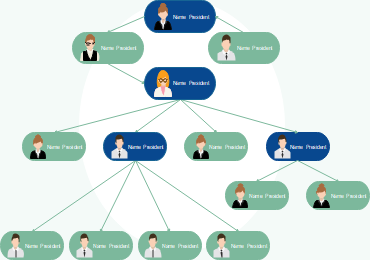8 Tips to Learn a New Language Fast
Need to put a scramble for this full "I need to learn a brand new language"? Maybe you want to learn a new language for the class. Or, on the other hand, so you can assume new occupation commitments. Then again, you can examine your main subject in the language you want to learn in. Whatever your clarification behind experimenting with a new language, you can easily ace it.
In any case, learning a language, even when you're learning it without any planning, shows up anything but speedy: You'll need to learn a new sentence structure, recall language words, work on talking.
Nonetheless, learning a new language shouldn't be a moderate or dull communication. Although nothing can supersede the challenging work, time, and dedication it asks from you, you can learn a new obscure vernacular rapidly on the off chance that you get to the right methodology and commit your time to the cooperation how to learn a new language fast.
The cerebrum does similarly with languages. The cerebrum bases on the easiest one inside sight of two messages in two one of some kind languages, as often as possible hindering or ignoring the ensuing one. The cerebrum seems to work at changed rates with different languages.
Exchanging beginning with one language then onto the following recommends advancing quality, for example, switching the gear in a vehicle. While learning languages, don't get redirected by anything in a language particular to your learning. This is more annoying at an amateur level since you may require an explanation in a language you can grasp, or you may need to check the word reference.
The underlying advance in getting the new language's dedication and learning it rapidly is to characterize objectives for what you need to have. Exactly when you think about the higher perspective, this looks good. On the off chance that you don't set objectives, how should you comprehend what you need to achieve and check with yourself and ask have you finished it?
Right when defied with learning a new language, a massive bit of overwhelming feeling. In this manner, there are such endless words to know a broad scope of ways to deal with think about. Characterizing destinations limit your fixation so you can take a break from obsessing about the nuances and quit fooling around.
The assessment has concluded that most humans who put them on the right track their objectives will undoubtedly gain ground.
We've all had the experience of making a comprehended and unequivocal objective: I will rehearse twofold seven days, I won't lose my temper at the working environment, I will inspect Chinese reliably. After a beginning stacked with energy and affirmation, our motivation becomes faint, and we end up in a comparative situation: no movement, losing our temper, and not analyzing Japanese.
The issue might be awful organizing, strange goals, or nonattendance of motivation. Regardless, there is another point we can mull over: often, we make plans and settle on decisions for the events in which we will have a lot of energy. Why not organize instead for those minutes wherein we will be exhausted? Take your supported technique for loosening up, and add a part of your goal language.
As a novice, it can be, by all accounts, overwhelming to squeeze the new words the whole day. Notwithstanding, it's not as annoying as it appears. There is a various primary, funny and creative way to add the new language words in your daily life.
In the first place, use each subsequent every day you have to learn a new word. When you think that it is getting, change from dynamic learning to free learning by doing what you would consistently do in your nearby language in your goal language.
Strangely, now, it is indistinct to me that at the language schools I've gone over, they by and large need to show a broad scope of things; in any case, now and again, might they want to tell you the best way in how to learn a new language.
This philosophy would look good; we go to a restaurant to eat, not learn to cook. In language learning, it doesn't look right. From my experience of various frustrations (which incited later victories), conceivably, the most important thing you can do is make singular learning works out. This is exceptionally fundamental when you move beyond the crucial level in a new language.
The best learning in any language is mainly when you should pick the alternative to use an obscure dialect. The most un-requesting way to deal with procuring authentic things is to travel or think abroad. Heading out to another nation sets out open ways to be encompassed by humans who convey the language you need to learn. Countless who don't have the foggiest thought regarding your neighborhood language.
It's fundamental to study the lifestyle and history-identified with the new language. Having a piece of knowledge about a culture's arrangement of encounters, ongoing turns of events, exacting feelings, and ordinary conventions can assist you in learning what people say and do.
Studies have shown that youths learn to scrutinize another language better is when they get to the lifestyle and setting of the language they read as you study a new language, put aside some push to learn about the lifestyle of the people who convey in that language.
Understanding that you expect to venture through an assessment is a superb strategy to rouse yourself. Endeavor to test yourself a little reliably. On the off chance that you're learning within a coursebook, complete the language and dialect exercises around meeting each part. You can similarly play web games or step through online assessments. Online learning and remembrance tests can be found for all intents and purposes in any language, which means to venture through a standardized audit sometime for better learning in how to learn a new language.




